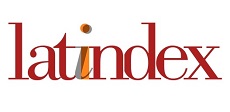Published
Letter from editor
DOI:
https://doi.org/10.15446/esrj.v18n2.49641Downloads
During the outgoing year, successful events took place, as Latin American and Caribbean Seismological Commission Assembly, on July 23, 24, 25, in Bogotá, Colombia. In that academic event, the relevant results associated with the seismotectonic behavior of the Latin America and Caribbean region were addressed, as well as the implications of active exploration of the tectonic conditions, the socio-economic impacts of exploration and extraction of economic resources, and the implementation of non-conventional techniques for exploring and mining that can contribute to sustainable development.
Another event was the Shale Colombia 2014, unconventional oil and gas development congress, aimed to determine the next steps towards the commercialization of unconventional oil and gas development for the country. The event hosted case studies from some of the pioneers in Colombian development, using the latest reservoir data fiscal updates and global scale technology case studies, to evaluate real potential Colombia holds for unconventional development.
In the outlook of 2015, one of the main events is the 26th International Union of Geodesy and Geophysics General Assembly, to be realized between June 22 and July 2, in Prague, Czech Republic. You are on time to participate in this event yet.
In Colombia will take place the XV Colombian Congress of Geology on 31 August to 5 September. This event is a bi-annual meeting gathering scientists, academicians, and researchers from the region, with an extensive participation of international guests. The Congress wants to provide a scenery to discuss the perspectives of mineral resources, new exploration techniques related to energy supply, proposals for optimized management of mining and mineral resources, between other topics.
Finally, we want to introduce you the manuscripts selected for this edition. There is a broad range of information about seismology with four papers coming from different countries. The first one is an analysis of the elastic structure beneath Australia shown by means of S-velocity maps and determined by the regionalization and inversion of Rayleigh wave dispersion. The obtained S-velocity models suggest the existence of lateral and vertical heterogeneity in the structure.
From Turkey, the second manuscript presents a site response analysis and estimation of S-wave velocity depending on acceleration data. The other two articles in seismology for this edition are based on improving accuracy and reliability of the first arrival times through Cross Correlation Technique, and in the characterization of seismic events using only one seismological station.
In other knowledge field, it is presented a mineralization potential study of the intrusive bodies in Valis, northwest of Iran.
A very graphical manuscript coming from the Gaza strip shows a study in sand dunes, from morphology, textural characteristics, and associated environmental impacts.
From Morocco, a study aimed to evaluate geostatistical methods for delimitation of anomalies detected in the phosphatic series of Sidi Chenane found that the exponential model is the best one to represent the spatial variability of their geoelectric data; models of the geology were successfully obtained from geostatistical method, which help mapping the phosphate deposit inclusions and the estimations of phosphate reserves were improved and better constrained.
In geotechnics, three important works are displayed. One is about the experimental triaxial tests developed to estimate undrained critical shear strength under monolithic loadings; the second one reads about classification of caving depth by feature extraction in cutting images, and the other is a simulation using artificial neural network and adaptative neuro-fuzzy system of compression ratio in a municipal solid waste.
Last two works talk about GIS and Kriging techniques applied to map a spatial distribution of sediments pollution in the Khajeh Kory river and an assessment of the land ecological security for Yancheng city, in China.
We hope you may find interesting information in our ESRJ.
Carlos Alberto Vargas
Earth Sciences Research Journal
Editor in Chief
How to Cite
APA
ACM
ACS
ABNT
Chicago
Harvard
IEEE
MLA
Turabian
Vancouver
Download Citation
License
Earth Sciences Research Journal holds a Creative Commons Attribution license.
You are free to:
Share — copy and redistribute the material in any medium or format
Adapt — remix, transform, and build upon the material for any purpose, even commercially.
The licensor cannot revoke these freedoms as long as you follow the license terms.
The Earth Sciences Research Journal is the copyright holder for these license attributes.























